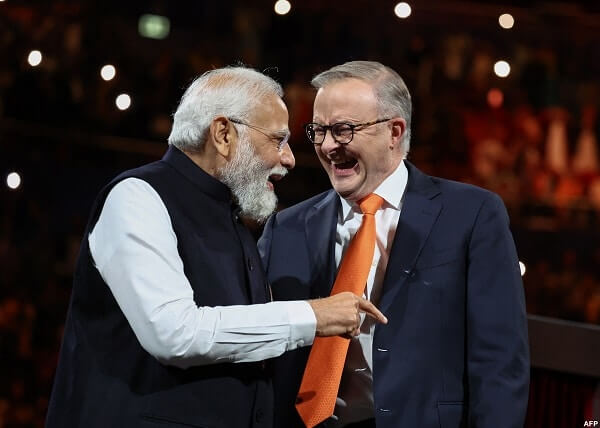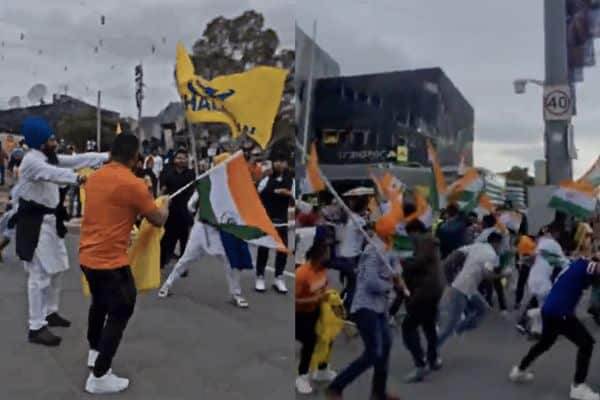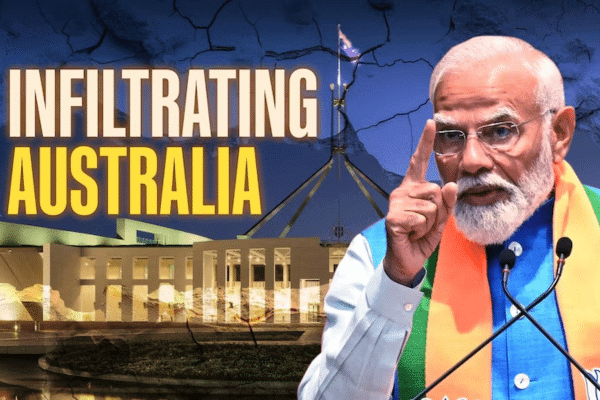A nest of spies. Allegations of government-assisted assassinations. Infiltration of political organisations. Phone threats against individuals. A James Bond plot? No, just Four Corners on ABC.
The 45-minute episode this week, Spies, secrets and threats: How the Modi regime targets people overseas did make for fascinating viewing for all those interested in international politics. Or perhaps James Bond. And yet, just like the screen franchise, it was sadly lacking in detail on several issues, and at times, seemed to follow the tired adage of not letting balance get in the way of a good story.
While sections of the ABC’s investigative report provided a comprehensive view of the Modi government, other segments would have benefitted from additional contextual references, and certain portions can only be described as perplexing.
Let’s look at the various issues covered in context of balanced reporting.

Religious and media freedom in India
It’s a well-documented fact that India has slipped in the Global Freedom of Press Index under the Modi Government. In 2024, India has ranked 159 out of 180 countries. The world also noticed the wrath of the Modi government against the BBC for its documentary, India: The Modi Question and the subsequent banning of the documentary by invoking emergency laws. Media ownership in India has increasingly narrowed into Modi-vested conglomerates, and large swathes carry the Modi government narrative.
Religious freedoms have also been questioned under the Modi government. During the election campaign of 2024, Narendra Modi himself made what many considered inflammatory speeches against minority groups in India.
Both these issues have often been reported by the international press – but more importantly, 669 million voters have expressed their displeasure with the Prime Minister and his BJP party at the recent elections.

By pushing the BJP into a minority government, the Indian public has sent a strong message to the parliament. How the Modi government responds in the next five years will be interesting to watch and comment.
For a democracy to work, no leader should escape media scrutiny, and presenter Avani Dias does effectively break the myth of Modi being a leader for all, and a country with a thriving free press, which is promising to see. At the same time, she still deigned to describe India as ‘turning towards an authoritarian regime’, despite the program airing well after this month’s clear show of democracy in motion.
Nest of spies
The Four Corners program built on the sensational Washington Post story from May this year that Australia had expelled a nest of spies. The story stated, quite breathlessly, that Indian spies were seeking to gain access to sensitive defence technology and airport security protocols by targeting former and current politicians as well as a state police service. Most shockingly, the Indian spies were also accused of monitoring the local Indian community.
As questionable and unpleasant as it can seem amongst allies, it’s widely accepted that countries all around the world monitor and verify each other – from those that subscribe to democracy such as the USA and UK all the way to those who don’t such as Russia.
In 1994, CIA agents joined US trade officials to various international locations including London and Geneva to spy on Japanese auto executives and government officials during Japan-US negotiations on automotive trade.
In May 2021, it was revealed that the Danish Defence Intelligence Service helped the NSA spy on European leaders including German Chancellor Angela Merkel from 2012 to 2014, and other officials from Germany, France, Sweden and Norway.

But the allegations of Indian government agents monitoring the diaspora are frightening if they can be properly substantiated and thus worth following.
John McCarthy AO, former High Commissioner to India between 2004-2009 commented on the matter to Indian Link earlier today.
“I hadn’t been aware of the degree of activity in the intelligence world from India in Australia, this was relatively new to me. One doesn’t regard the Indian government as the sort of government that behaves in that way towards a friendly country,” he said.
“Of course, all countries have intelligence activities which may or may not be welcomed by host governments, but it was the extent to which the program suggested parts of the Indian government have been active in the diaspora which surprised me.”
Khalistan
The ABC (in Four Corners and a Foreign Correspondent program last month) has extensively reported on Sikh separatists fighting to secede from India and form a new country, Khalistan. Both programs gave an extraordinary amount of airtime to the leaders of this group, providing them full opportunity to present their views. They spoke about their passion for Khalistan due to the oppressive policies of the Indian government and the sacrilege of the attack by the Indian army on their holiest site of worship, the Golden Temple, in 1984.
What both programs fail to do however, is to give context to the background of Khalistan – the storming of the Golden Temple (a holy shrine which had been converted into a fortress of arms by Sikh extremists), the subsequent assassination of PM Gandhi by her own Sikh bodyguards, and the bombing of an Air India flight which killed all 329 on board. Narendra Modi’s BJP was not in power when these events occurred.

Speaking to Indian Link, former Australian High Commissioner to India Barry O’Farrell observed that most Australians do not understand the history on this issue. “I note Four Corners did not explain why Gandhi “invaded” the Golden Temple, nor did it refer to Pakistan’s support for the movement. Regarding the allegations of Indian government involvement in the assassination of a Canadian citizen connected with the Khalistan movement, neither Canada nor the US prosecutions have made it to court.”
In the interest of balance, the program could have spoken to other members of the Indian community, including other Sikhs, about their thoughts on Khalistan. No group is a monolith, including the Sikh community, and even a cursory straw poll would have revealed large segments of the community who view Khalistan as an extremist position held by a militant minority, and condemn the movement. Had Four Corners attempted to canvass the community at large on their thoughts on Khalistan, some balance on the issue would have resulted.
Overseas Friends of BJP
There was much made of the organisation Overseas Friends of BJP (OFBJP) and its strategy to infiltrate local politics – “by first getting elected to local government, then state and ultimately federal parliament.”
Mention was made of Rahul Jethi as a powerbroker in the Hills area in Sydney, and his wife Reena Jethi, Deputy Mayor of the Hills Shire Council. The episode claimed that Rahul lobbied other members of the Council to vote for his wife at the time of local elections.
One is hard pressed to understand why a husband should not ask others to vote for his wife.
Much also was made of a surge in Indian Australians who have signed up in the Hills electorate at the urging of Jethi, attributing it to branch stacking rather than a simpler hypothesis of civic participation.

Barry O’Farrell remarked on this issue, “I do not support branch stacking but there is a history of migrant communities being involved in both side of politics and to date, this has not adversely affected our democracy.”
John McCarthy AO was equally nonplussed: “I think it is legitimate that a party in one country seek in another country to influence the voting patterns of the diaspora who have the right to vote in that first country.”
Unless there was evidence of Jethi paying for branch admission, this seems to be a non-issue. It’s highly likely many new migrants from India who have seen the economic growth in their country under PM Modi will find greater alignment with the policies of the Coalition here in Australia and will be inclined towards that side of politics.
On the plus side though, the program did pick up on the fact that OFBJP is not registered as a foreign agent in Australia. In the US, the organisation is declared as one, and therefore must disclose all its political activities. Perhaps it is time the OFBJP did this in Australia too?
Conclusion
The Four Corners report has had the Indian community, here as well as back home, scratching their heads.
The ABC has a sterling reputation for balanced reporting – in the 1970s, it was the touchpoint for Australia’s role in the Vietnam war, and more recently, has exposed shocking war crimes committed by the SAS in Afghanistan.
But this episode played out less like Australia’s premier investigative documentary series, and more like a James Bond film, contorting decontextualised information in the pursuit of a coarsely drawn villain.
READ MORE: Barry O’Farrell on Four Corners report: ‘Potential damage to Ind-Aus ties’





